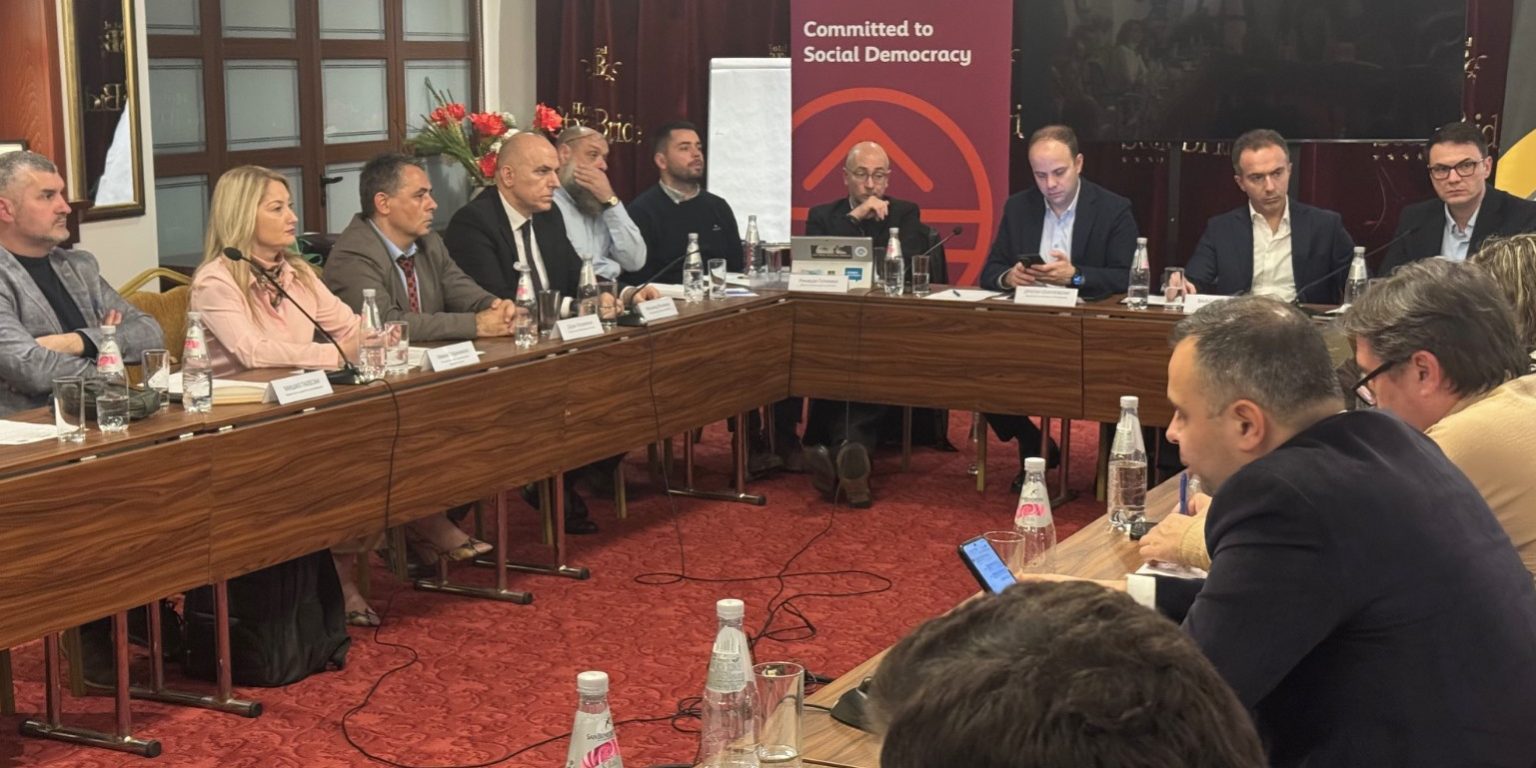Skopje, 19 November 2025 – The key risks faced by journalists and media workers, along with the mechanisms institutions employ to protect them, were at the center of today’s expert discussion held in Skopje. The participants exchanged experiences on the trends in physical and online threats, the impact of new legislative measures, and the police and judicial procedures activated when journalists and media workers come under attack.
Special emphasis was placed on the role of newsrooms and the media regulator in creating a safer working environment, as well as on the need for stronger cross-sector coordination and a faster, more efficient institutional response.
In his remarks, AJM Director Dragan Sekulovski noted that, despite a decrease in the number of physical attacks in 2025, the work of journalists had not become easier:
“Online pressure grows by the day. Our priority is for every threat—from an online comment to a physical attack—to be recognized, taken seriously and treated institutionally.”
Valon Sadiki, representing the Friedrich Ebert Foundation, stressed that safety was not only a technical but also a social issue:“Journalists can work freely only in an environment that protects them. This is why joint efforts by all stakeholders are crucial.”
The Secretary General of the European Federation of Journalists (EFJ), Ricardo Gutiérrez, also addressed the participants, warning that impunity remains a key problem:
“When there is no adequate response and accountability, this creates space for new threats and attacks. This is a European challenge, not just a local one.”
Speaking on behalf of the Ministry of Digital Transformation, Mishko Taleski, Head of the Audio-Visual Policy Department, discussed digital transformation and media safety, highlighting the importance of digital tools and support systems in protecting journalists and media workers.
Journalist Ognen Čančarević from TV Telma shared his field experience:“Thorough planning is always essential; sometimes a single second of careful assessment matters more than the entire report. When you’re on the ground, the risks are very real.”
Alsat TV editor Adrian Kerimi reminded the participants of the importance of newsroom support:
“It is the editor who must ensure a plan, a protocol, and support. A reporter must never be left to manage on their own.”
During the event, representatives of the Ministry of Interior (MoI), the Public Prosecutor’s Office, and the AVMU reaffirmed their shared commitment to strengthening the system for protecting journalists and media workers. Ivana Stojanovska of the AVMU dwelled on the regulator’s role in building a safer and more supportive media environment. Then followed the remarks by Muhamed Ismaili, Assistant Minister for Public Relations and Strategic Affairs at the MoI, who presented current police protocols and procedures for handling attacks on journalists, noting that their enforcement was already resulting in a more visible institutional response.
On the part of the judicial sector, Dejan Petrevski, prosecutor at the Basic Public Prosecutor’s Office in Skopje, outlined the ongoing challenges in processing cases involving threats and violence against journalists, emphasizing the need for continuous coordination among all competent institutions.
The event concluded with a joint message that improving journalist safety requires continuous effort, mutual trust, and functional institutional responses. AJM remains committed to this goal and to its active partnership with the relevant institutions and international organizations.
The event was organized by the Association of Journalists of Macedonia (AJM), in cooperation with the Friedrich Ebert Foundation (FES) Skopje, and took place on 19 November in Skopje.






